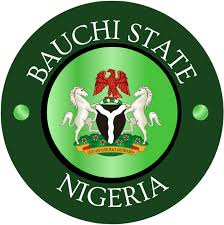COVER
Nigeria among Top 10 African Countries with High External Debt – Afreximbank

By Tony Obiechina, Abuja
Africa’s external debt is projected to reach $1.29trn by 2028 as Nigeria was listed among the ten African nations accounting for 69 percent of the continent’s total external debt, according to a recent report by Afreximbank Research.
The report, titled ‘African Debt Outlook: A Ray of Optimism’ and released in February 2024, underscores the persistent debt challenges facing African nations while highlighting potential strategies for economic stabilization.
It revealed that in the first half of 2024, ten African nations collectively held 69 per cent of the continent’s total external debt stock, an increase from 67 per cent in 2023.
Nigeria alone accounts for eight per cent of Africa’s total external debt, making it one of the largest debt holders on the continent. Other countries with significant external debt burdens include South Africa (14 per cent), Egypt (13 per cent), Morocco (six per cent), Mozambique (six per cent), Angola (five per cent), Kenya (four per cent), Ghana (four per cent), Côte d’Ivoire (three per cent), and Senegal (three per cent).
The report attributed the rise in Africa’s external debt to limited development in domestic financial markets, high interest rates, and an increasing demand for foreign exchange to finance imports.
Additionally, reliance on aid, concessional loans from multilateral institutions, and competitive credit rates from private lenders have compounded the debt burden.
Since 2008, Africa’s external debt has surged significantly, reaching approximately $1.16trn by 2023, which represents 60 per cent of the region’s total public debt.
Projections suggest a modest increase to $1.17trn in 2024, with a continued upward trajectory expected to push the figure to $1.29trn by 2028.
This growth is largely driven by rising financing needs, fueled by rapid population expansion and economic development requirements.
According to Nigeria’s Debt Management Office (DMO), the country’s total public debt climbed to N142.3trn as of September 30, 2024, reflecting a 5.97 per cent increase (N8.02trn) from N134.3trn in June 2024.
Debt servicing in the first three quarters of 2024 exceeded N7trn, driven by increased obligations to multilateral and bilateral creditors, as well as significant interest payments on commercial loans.
Despite its debt burden, Nigeria has continued to leverage international capital markets to finance its fiscal needs.
In December 2024, the country issued a $2.2bn Eurobond, with expectations of further issuances as global interest rates decline.
However, the report cautioned that while lower rates may ease immediate fiscal pressures, macroeconomic risks such as currency depreciation and dwindling foreign reserves persist.
COVER
United Capital Reports N11.9bn Profit, Declares N5.4bn Interim Dividend
United Capital Plc has reported a profit after tax of N11.9 billion for the first half of 2025.This represents a 54 percent increase from N7.74 billion profit recorded for the first half of 2024.The company announced this in a corporate disclosure on Monday through the Nigerian Exchange Ltd.
The profit before tax also grew by 52 per cent, from N9. 06 billion in 2024 to N13.79 billion while the gross earnings rose by 57 per cent, from N15. 15 billion to N23.76 billion.The net operating income climbed to N21.32 billion compared to N12.76 billion in 2024, a 67 per cent year-on-year growth.Operating expenses witnessed a 49 percent increase to N10.61 billion from N7.12 billion of 2024.Commenting on the group’s performance, the bank’s Group Chief Executive Officer, Peter Ashade, said, “I am pleased to inform all stakeholders that United Capital Plc ended the first half of the year on a strong and positive note.“This is continuing our track record of excellence and strong financial performance, as demonstrated by our remarkable earnings growth and robust performance across key financial metrics, despite the prevailing macroeconomic challenges and market volatility.“During the period under review, we recorded significant financial growth, with gross earnings increasing by 57 per cent year-on-year to N23.76 billion.“Profit before tax grew by 52 per cent year-on-year to N13.79 billion, profit after tax rose by 54 per cent year-on-year to N11.89 billion, while Shareholders’ Funds grew by 25 per cent year-to-date to N166.91 billion.“This is a testament to the strength of our capital base and the confidence reposed in us by our investors,” he said.Ashade noted that “these results reflect the resilience of the company’s business model, the dedication of people, and the effective execution of our strategy across our business lines.“As we look ahead to the second half of the year, we remain focused and firmly committed to sustaining this strong performance.“With a solid foundation, a clear strategic direction and our retail and Pan-African play in full-force.“United Capital is well-positioned to continue delivering superior returns to shareholders and providing best-in-class solutions to all our stakeholders.“Finally, to reward our esteemed shareholders, we are excited to announce the payment of an interim dividend of 30 kobo per share for 50 kobo ordinary shares of the company.“This represents a payout of N5.4 billion. We have obtained the approval of the board and details will be shared with our shareholders,” he added. (NAN)COVER
Tinubu Confers National Honour on Triumphant Super Falcons

By David Torough, Abuja
President Bola Tinubu has bestowed the national honour of Officer of the Order of the Niger, on the Super Falcons and the entire technical crew.Tinubu also allocated three-bedroom apartments in Abuja to each of the players and the technical crew at the Renewed Hope Estate.
The President also directed the cash award of the naira equivalent of $100,000 each of the 24 players and $50,000 to each of the 11-man technical crew. This came during a reception in honour of the players and the coaching crew at the Presidential Villa, Abuja.He said, “I hereby conferred on the players, the 11-man technical team, with national honours of the Officer of the Order of the Niger.“Additionally, I have directed the allocation of three-bedroom apartments in the Renewed Hope Housing Scheme.“Then there is the cash award of the naira equivalent of $100,000 US dollars each 24 players and the naira equivalent of $50,000 to the 11-man technical crew.”“You have inspired millions, especially young girls who now see proof that their dreams are valid and achievable.“You have inspired me, too. And it’s great for a nation to have assets that are the hope of today, tomorrow, and the day after. You represent that hope. You ignited that hope. And we will continue to encourage you, the next generation, and other generations after you.”The President recounted the emotional moments of the final match, noting how the team’s performance lifted the nation’s spirits and united Nigerians from all walks of life.“Your victory represents more than a sporting accomplishment. It is a triumph of courage, determination, discipline and consistency.“Honestly, I didn’t want to watch the match. I didn’t want to have high blood pressure. But people came in and turned my TV on that channel. When it was 2-0, I got very offended and restless.“But I was still watching with the spirit of resilience, determination, and courage. And after that penalty, my strength was lifted, and I believe that of the nation was lifted too.“But you almost made me angrier because your mother (the First Lady) was in the kitchen, nearly abandoning my dinner.”She doesn’t watch the game except when the girls are playing. And at the end of the final whistle, it was joy all over the country,” he said.The President assured the team of his administration’s continued support and commitment to sports development, pledging that the government would invest further in women’s football and youth talent development across the country.“Your story is a story of hope. And in this era of Renewed Hope, we celebrate you not just as champions of Africa, but as champions of the Nigerian dream.”In a further show of appreciation, the Chairman of the Nigeria Governors’ Forum (NGF), Governor AbdulRahman AbdulRazaq, also announced a donation of N10 million to each of the players and technical team members on behalf of the 36 state governors.The First Lady, Senator Oluremi Tinubu, described the Super Falcons as role models and shining examples of courage and excellence.She congratulated the team for their exceptional performance and unwavering spirit, describing their journey as “a testament to resilience, teamwork, and determination.”“You played with passion, confidence, and an unshakeable belief in yourselves—that it is not over until it is over.“The zeal you displayed on the pitch was nothing short of inspirational. You never wavered and reminded the world why Nigeria remains a powerhouse in African women’s football.”The First Lady prayed for the team’s continued success and shared an earlier conversation with President Tinubu about the team’s bright future as world champions.“I told Mr. President this morning that you are going to win the World Cup, and he thought I was too ambitious. But Ajibade, the team captain, just seconded that, and that is possible,” he said.Super Falcons Captain Rasheedat Ajibade said the victory was for the team and for every Nigerian girl who dreams of achieving greatness.“Today, I stand before you not just as the captain of the Super Falcons, but as a proud daughter of Nigeria, carrying the dreams, resilience, and spirit of our great nation,” she said.“On behalf of my teammates, coaches, and technical staff, I express our heartfelt gratitude for this warm reception and the unwavering belief you have shown in us.”Emphasising the significance of their 10th WAFCON title, the team captain said, “This victory is not just a trophy. It is a testament to the unyielding spirit of Nigeria. It is a celebration of every young girl in our villages, towns, and cities who dares to dream… This 10th title is for you, Mr. President, for Nigerians, for Super Falcons, and for every young child who believes and dreams of being on this stage someday.”Ajibade called for continued support from the government and stakeholders to elevate Nigeria’s global standing in women’s football.Chairman of the National Sports Commission, Shehu Dikko, described the team’s victory as a symbol of national unity, inspiration, and the triumph of belief, courage, and excellence.Dikko credited President Tinubu’s administration with investing in sports development and women’s empowerment.“The Super Falcons’ triumph is a fruit of your unwavering support for sports and women. You have always believed that sports can unite us, heal us, and uplift our spirits as one of the major drivers of the economy. And today, we have seen it happen,” he stated.He commended the First Lady, Senator Oluremi Tinubu, for her “constant support for our women in sports.”“This win goes beyond sports. It is a powerful symbol of our national unity and cohesion. In those 90 minutes, Nigerians everywhere from the north, south, east and west held their breath, prayed together, cheered the team, and finally celebrated together.”That is the power of sports, and indeed the power of our women in sports,” he said.COVER
NCS Strengths Ties with China Customs

By Tony Obiechina Abuja
The Nigeria Customs Service (NCS) has deepened its strategic engagement with the General Administration of Customs of China (GACC) through a high-level meeting held in Beijing on July 25.According to NCS Spokesman, Abdullahi Maiwada in a statement on Sunday, Assistant Comptroller of Customs, the meeting aimed to explore bilateral knowledge exchange and capacity development in customs administration.
The NCS delegation, led by Assistant Comptroller-General of Customs Oluyomi Adebakin, discussed customs training methodologies, modernization models, and technology-driven solutions with GACC officials. The Chinese Customs authorities shared their structured training system, which incorporates virtual reality, 5G-enabled systems, and blended e-learning approaches.The meeting highlighted Nigeria’s active participation in China-led customs development initiatives, with over 200 African customs officers trained since 2023. The Chinese Customs officials commended Nigeria’s growing leadership in international customs platforms and appreciated the election of the Comptroller-General of Customs, Bashir Adewale Adeniyi, as Chairperson of the World Customs Organisation (WCO) Council.Both parties expressed mutual interest in exploring technical exchange programs, joint research initiatives, and officer exchange schemes. The NCS aims to strengthen its human capital, advance intergovernmental partnerships, and modernize customs operations in accordance with global standards.The engagement aligns with promoting knowledge sharing, harmonizing customs procedures, and building an integrated trade infrastructure for sustainable development, particularly under the African Continental Free Trade Area (AfCFTA).









